"By eliminating these 10 deadly sins you will have a more successful and profitable construction project." It’s surprising how often construction projects don’t go as well as expected. Why is this and what can be done to improve the success of construction projects? I’ve often been asked what contractors should do differently. Here are some items I believe are critical to the success of all projects. See if you agree. I’m sure you can add a few more to my list. I’d love to hear your ideas in the comments below. Do not make these mistakes on your construction project10 deadly sins which impact the success of your construction project 1. Ignoring good safety practices. We have a duty to ensure our employees return home safely at the end of each day. Furthermore, accidents cost money and disrupt construction projects. Unsafe working conditions can result in a loss of productivity and negatively impact the morale of our employees. Accidents happen quickly on construction projects – don’t add another injury to the industry’s statistics or another headline to tomorrow’s newspapers. Ensure your team has the knowledge and equipment to carry out their tasks safely. Don’t accept unsafe practices. Why should we take construction safety seriously? "Don’t accept unsafe practices." 2. Producing poor quality work. Poor quality workmanship negatively impacts your reputation. In addition the cost of rework is enormous and construction industry sources say it could add over 5% to the cost of every construction project. It also causes project delays. Of course, poor quality work can endanger lives should the structural integrity of the facility be jeopardized. Ensure your construction team has the proper skills and equipment to carry out their tasks and that they clearly understand the specifications and the quality expected from them. There is no excuse for poor quality, and we all need to step-up and take pride in our work and our projects. How important is quality on your project? 3. Not training your team. We depend on our team to deliver a quality construction project safely, efficiently and on time. Do they have the necessary skills to do so? We continually hear moans that we cannot get the skilled people we need. We often have to pay inflated wages and salaries to obtain particular skills which are in demand. Yet, what are we doing to overcome this skills shortage? Are we training the next generation of workers for our company and the industry? I’ve always found training to be an essential component to my construction business. Trained, skilled employees are an asset. But more importantly providing training to employees is good for their morale and helps with employee retention. Train and mentor your team – it will pay dividends. Training and mentoring in construction "We depend on our team to deliver a quality project safely, efficiently and on time." 4. An unplanned construction project. Planning starts before we set foot on a construction project. It involves deciding the most suitable construction methodology, how we’ll manage the project, deciding what resources are required and by when and then procuring these resources. Planning our construction equipment needs, where we’ll place our cranes, sheds and offices. A project that’s not planned properly will cause problems later. Planning also means considering all alternatives to ensure we’ve chosen the most suitable construction methods and materials. But planning is also an ongoing process. I am frequently amazed how many project managers don’t appear to plan their projects on a daily and weekly basis. Work comes to a halt because construction materials or equipment haven’t been ordered or because we haven’t got the project ready for the follow-on activities. Some construction projects seem to drift from one crisis to another. Obvious problems seem to be overlooked until they hit like a run-away express train. Yes, some project managers are good at putting out these fires, but how much better would it have been to avoid the crisis in the first place? Set time aside each day to plan and consider what has to be done next on your construction project, then ensure that the processes, materials, people and equipment are in place so the work will be able to proceed as planned. A little extra time spent on planning will save you money and time later. planning your construction project 5. Not having a good construction schedule (programme) which is regularly updated and referenced. I’ve always found a project schedule an essential aid to managing a successful construction project. For smaller construction projects it can be a simple hand drawn bar chart and for more complex projects it could be a detailed resourced and linked activity schedule. The schedule helps plan and resource the project. But it’s also an essential part of preparing variation claims when the customer hasn’t provided information or access as required by the schedule. Of course, a construction schedule is almost useless if it isn’t communicated to the construction team so they understand what the next targets are on the project. 10 reasons why a construction schedule/program is useful "A project schedule an essential aid to managing a successful construction project." 6. Failing to read and understanding the contract document. Many contractors don’t read their contract until they’re in trouble. Well, by then it’s too late! The project contract spells out the project scope and the contractor’s obligations. It also spells out the customer’s obligations. By understanding the contract you can ensure that both you and your customer meet these obligations. Ignorance of the contract is no excuse. If necessary ask an expert for advice if you don’t understand a clause or you are unsure how to interpret something in the contract. The cost of this advice is often minor compared to the costs of interpreting the contract incorrectly. It often pays to have a summary of some of the more important clauses so they can readily be referred to. Don’t get into a project where the contract terms are so onerous you can’t meet them. your construction project contracts - why you need to understand them 7. Submitting a price which you know is below cost. Often contractors become so desperate for a construction project that they submit a price lower than their costs. Almost always this strategy is a disaster. Why pay the customer for the privileged of constructing their project. It saps the morale of employees who have to work on a project that is bound to lose money no matter how hard they work. These projects seldom turn out well. Don’t make a mistake when you price your next construction project 8. Failing to invoice for work done and not following-up to check that you’ve been paid. This seems obvious but I’m frequently amazed at how lax some contractors are at claiming for the work they’ve completed. Who works for free? If you’ve completed work submit your invoice in accordance with the contract. Just as important is to follow-up to ensure you’ve been paid. If you aren’t paid on time you probably won’t be able to pay your subcontractors and suppliers on time which will negatively impact your relationship with them and jeopardise progress on your project. Not being paid on time impacts cashflow and poor cashflow destroys companies. Negative cash flow – the death for many construction companies "More great tips to make you a better contractor." 9. Not doing your homework before submitting your price for the project. I’m astounded how many contractors price a project without doing their homework properly. Some contractors work for dubious customers who may not have the finances to pay for the work. Other contractors price projects without visiting the project site and then are surprised when the site conditions aren’t as expected – maybe the access is limited, the ground conditions are difficult to excavate or the terrain is steeply sloping resulting in additional costs. Project conditions and laws often vary between states and sometimes even between counties. Ensure you have allowed for these differing conditions in your project price, you don’t want to have an unpleasant surprise after starting work on the project. Don’t Submit Your Construction Price (estimate/tender) Proposal Until You Get These Questions Answered On A Site Visit 10. Wasting materials. I’m sure we are all familiar with the loads of rubbish produced on construction projects. This rubbish is generated from demolishing unacceptable work, over-ordering of materials, off-cuts, packaging, wrongly ordered materials, materials broken during handling and installation, and products that are no longer required. The cost of this waste isn’t only the original cost of the material but also the cost of disposing it which can be enormous these days. This waste can often be cut dramatically by reducing the amount of rework, better ordering procedures to ensure off-cuts are minimised, educating employees about the cost of waste and encouraging them to handle materials more carefully and by implementing better material handling and storage systems on the project. But the waste isn’t just about wasted materials it also involves improving productivity on the project and the better use of equipment. Let’s get smart and cut wastage. Ordering the correct quantity of construction materials "Let’s get smart and cut wastage." Ensure the success of your construction projectI’m sure you agree that most of the points above are obvious, yet it’s surprising how often they feature when projects go badly. By concentrating on eliminating these 10 deadly sins on your project you will have a more successful and profitable project. Of course there are other sins and I’m sure you can add to the list. We would like to hear your comments. #constructionmanagement #constructionprojects #construction #contractors This article was first published on the ClockShark website - Get The Industries' #1 Time-Tracking AppRunning a field service or construction business takes coordination and a great team. With ClockShark you get the industries' #1 timesheet app To read more about the author’s books and find out where you can purchase them visit the pages on this website by clicking the links below:
'Successful Construction Project Management: The Practical Guide' 'Building a Successful Construction Company: The Practical Guide' 'Construction Book reviews' To read more about the author visit the page 'Paul Netscher' Want to contact Paul Netscher please enter your details on 'Contacts' Find out how Paul Netscher can help you Order your books from Amazon Order your books from Amazon UK © 2023 This article is not to be reproduced for commercial purposes without written permission from the author. construction management construction project management
1 Comment
|
Archives
June 2024
Note: We welcome genuine comments, especially comments that add additional information to the subject matter in the article. We however reserve the right to remove inappropriate comments, which includes comments that have nothing to do with the subject, comments that include inappropriate language, and comments that are an advertisement for a product or company, or which include an advertising link. Comments must be in English. We will not enter into discussion on why a particular comment was removed.
CategoriesCopyright 2016 - The attached articles cannot be reproduced for commercial purposes without the consent of the author.
The opinions expressed in the attached articles are those of the writer. It should be noted that projects are varied and different laws and restrictions apply which depend on the location of the contractor and the project. It's important that the reader uses the supplied information taking cognisance of their particular circumstances. The writer assumes no responsibility or liability for any loss of any kind arising from the reader using the information or advice contained herein. "I have what I consider some of the best books on construction management."
Books are available from: Amazon.com Amazon.co.uk takealot.com kalahari.com Amazon.in Amazon.de Amazon.fr Amazon.it Amazon.com.au Powell's Fishpond uread bokus Amazon.ca Amazon.es Other retail stores Available in paperback or on Kindle "28 YEARS OF CONSTRUCTION PROJECT MANAGEMENT EXPERIENCE, DEVELOPING SUCCESSFUL CONSTRUCTION PROJECT MANAGERS AND BUILDING SUCCESSFUL CONSTRUCTION COMPANIES"
|
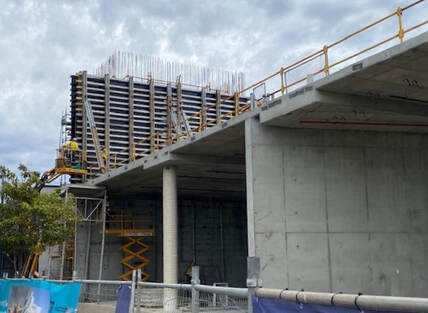
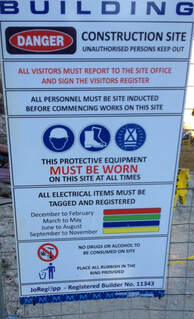
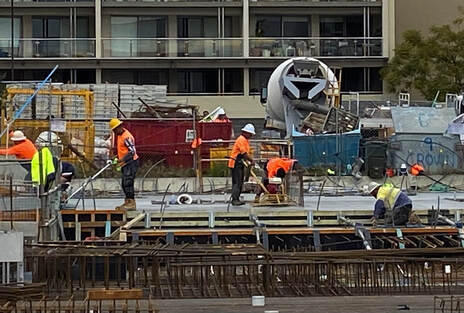
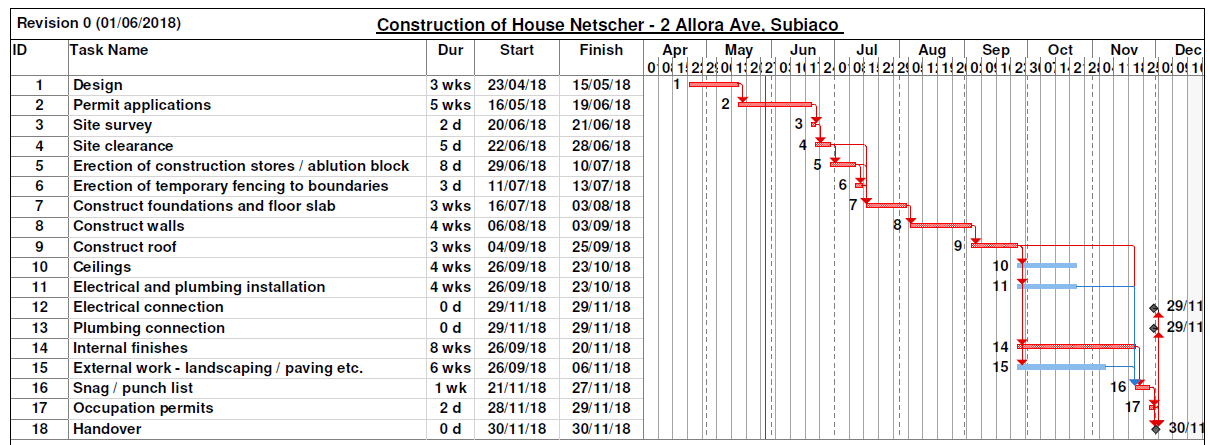
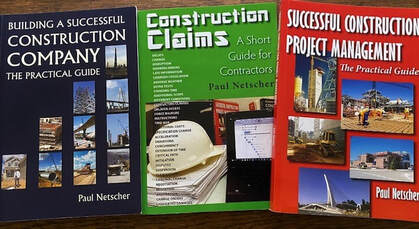


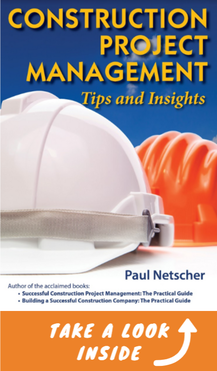
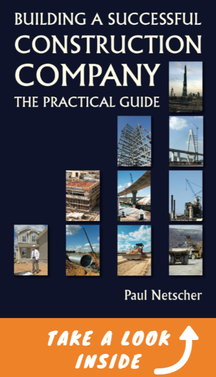

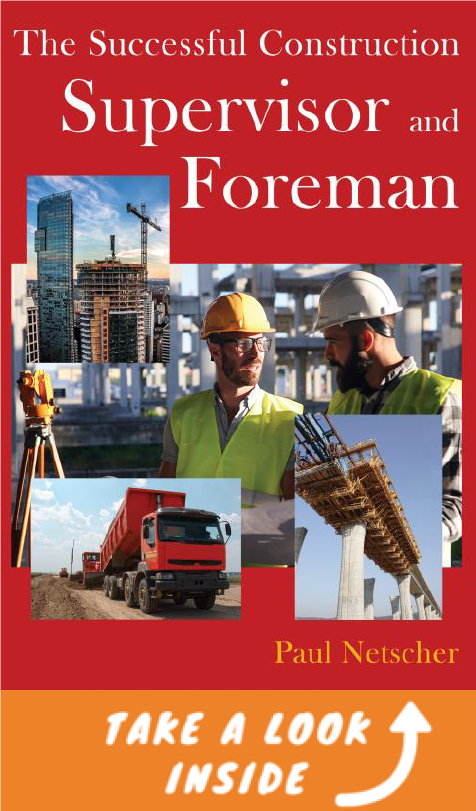


 RSS Feed
RSS Feed




